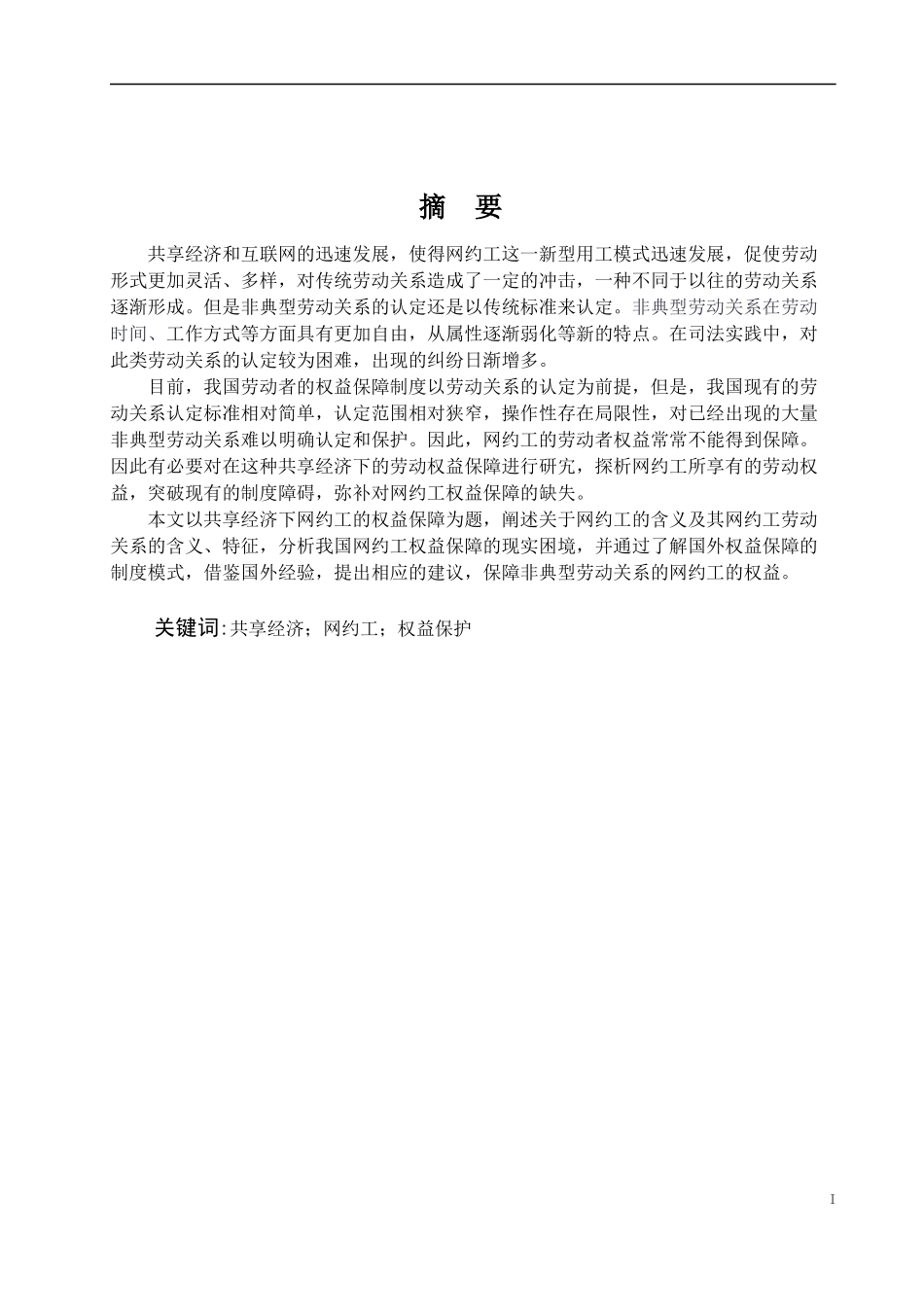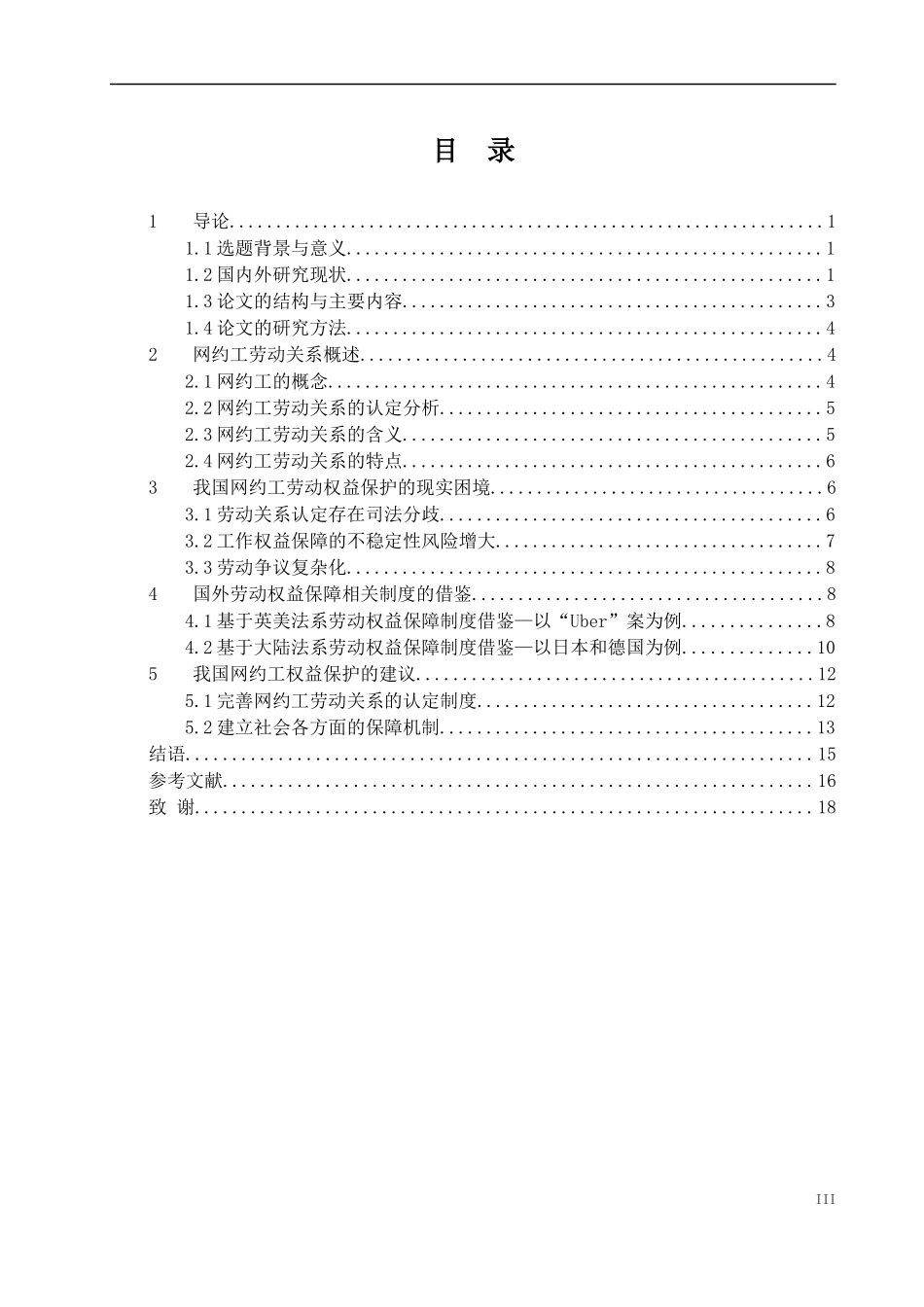摘 要 共享经济和互联网的迅速发展,使得网约工这一新型用工模式迅速发展,促使劳动形式更加灵活、多样,对传统劳动关系造成了一定的冲击,一种不同于以往的劳动关系逐渐形成。但是非典型劳动关系的认定还是以传统标准来认定。非典型劳动关系在劳动时间、工作方式等方面具有更加自由,从属性逐渐弱化等新的特点。在司法实践中,对此类劳动关系的认定较为困难,出现的纠纷日渐增多。目前,我国劳动者的权益保障制度以劳动关系的认定为前提,但是,我国现有的劳动关系认定标准相对简单,认定范围相对狭窄,操作性存在局限性,对已经出现的大量非典型劳动关系难以明确认定和保护。因此,网约工的劳动者权益常常不能得到保障。因此有必要对在这种共享经济下的劳动权益保障进行研宄,探析网约工所享有的劳动权益,突破现有的制度障碍,弥补对网约工权益保障的缺失。本文以共享经济下网约工的权益保障为题,阐述关于网约工的含义及其网约工劳动关系的含义、特征,分析我国网约工权益保障的现实困境,并通过了解国外权益保障的制度模式,借鉴国外经验,提出相应的建议,保障非典型劳动关系的网约工的权益。 关键词:共享经济;网约工;权益保护 IAbstractWith the rapid development of the sharing economy and the internet, the new employment mode of net hire has been developed rapidly, which makes the forms of labor more flexible and diverse, which has caused a certain impact on the traditional labor relations, and a kind of labor relations which is different from the past has gradually formed. But the identification of atypical labor relations is still based on traditional standards. Atypical labor relations are more free in terms of working hours, working methods and so on. In judicial practice, the identification of such labor relations is more difficult, and disputes are increasing day by day.At present, our country worker's rights and interests safeguard system takes the labor relations confirmation as Premise, but the existing standards of identification of labor relations in our country are relatively Simple, the sc...


